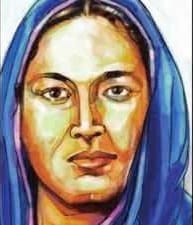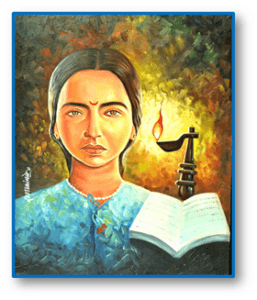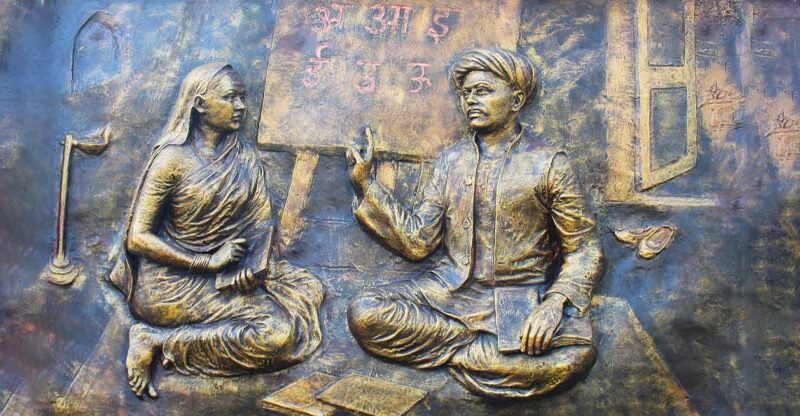Savitribai Phule: Mother of Indian Feminism
Savitribai Phule, born on January 3, 1831, in Naigaon, Maharashtra, is celebrated as a trailblazer in women’s education and social reform in India. Alongside her husband, Jyotirao Phule, she was instrumental in challenging the entrenched norms of patriarchy and caste discrimination that pervaded 19th-century Indian society. Her contributions not only revolutionized education for girls but also laid the groundwork for broader social reforms.
- After getting formal education from her husband Jyotirao she took trainning at Ms. Farar’s Institution in Ahmednagar.
- The Mahila Seva Mandal was started with the objective of creating awareness among women regarding their rights, dignity, and other social issues.
- A barbers’ strike was organised in Mumbai and Pune to oppose the prevailing custom of shaving heads of widows.
- The Phule couple also opened a night school in 1855 for agriculturists and labourers so that they could work in the daytime and attend school at night.
- A care center called ‘Balhatya Pratibandhak Griha’ was started.
- A child was adopted from a Brahmin widow called Kashibai, thus sending a strong message to the progressive people of society. The adopted son, Yashavantrao, was raised to become a doctor.
- She also joined a social reform society called ‘Satyashodhak Samaj,’ which Jyotirao founded on September 24, 1873, in Pune.
Contents
Contributions of Savitribai Phule to Girls’ Education
Founding the First Girls’ School
In 1848, Savitribai Phule established the first girls’ school in Pune at Bhide Wada, marking a significant milestone in Indian education history. This initiative was groundbreaking, as it defied societal norms that discouraged female education. Savitribai became the first female teacher in India, paving the way for countless women to follow in her footsteps.
Curriculum and Expansion
The curriculum at Bhide Wada included subjects like math, physics, and social studies, reflecting a modern educational approach. By the end of 1851, Savitribai and her husband had opened three schools for girls in Pune, enrolling around 150 students from various castes. They also founded two educational trusts aimed at promoting education among marginalized communities, including the Native Female School and the Society for Promoting the Education of Mahars and Mangs.
Advocacy Against Social Evils
Savitribai’s work extended beyond education; she was a fierce advocate against several social injustices:
– Child Marriage and Sati Pratha: She campaigned vigorously against child marriage and the practice of Sati (the burning of widows), which were prevalent at the time. Her efforts contributed to changing societal attitudes towards these practices.
– Support for Widows: Savitribai founded the Balhatya Pratibandhak Griha (Child Killing Prohibition Home) to provide a safe haven for pregnant rape victims and to prevent infanticide. This initiative highlighted her commitment to protecting vulnerable women and children.
– Promotion of Widow Remarriage: She advocated for widow remarriage, challenging the societal stigma attached to widows and promoting their rights to live dignified lives.
Social Opposition and Violence
Caste and Gender Discrimination
Savitribai encountered fierce opposition from upper-caste individuals who believed it was sinful to educate women, particularly from lower castes. This opposition manifested in various forms of harassment, including verbal abuse and physical violence. As she traveled to and from school, she was often pelted with stones and cow dung by those who opposed her efforts to educate girls.
Ostracism
The Phules faced ostracism from their own community due to their progressive beliefs. This pressure forced them to leave their home when Jyotirao Phule’s father demanded they shut down the school or vacate the premises. Despite this, they chose to continue their mission to educate girls, showing remarkable resolve in the face of adversity.
Personal Sacrifices
Savitribai’s commitment to education came at a personal cost. She often faced lewd comments and harassment from men who disapproved of her work. To cope with this, she would carry an extra sari to change into after arriving at school, allowing her to maintain some dignity despite the abuse she endured on her way.
Educational Challenges
Limited Resource
Establishing a school for girls during this period meant starting with limited resources and support. Initially, Savitribai taught a small group of girls, but as word spread about her efforts, the number of students grew significantly. By 1851, she was running multiple schools with a total of around 150 students.
Curriculum Development
Creating a curriculum that challenged traditional norms was another hurdle. The Phules aimed to provide a broad education that included subjects like mathematics and social studies, which were not typically offered to girls at the time. This innovative approach was met with skepticism and resistance from conservative elements within society.
Circumstances of Her Death
In 1897, as the bubonic plague spread across Maharashtra, Savitribai and her adopted son Yashwant established a clinic to treat those afflicted by the disease. This clinic was located in an infection-free area on the outskirts of Pune. Demonstrating immense courage and compassion, Savitribai rushed to help a young boy, the son of Pandurang Babaji Gaekwad, who had contracted the plague in a nearby settlement. She carried him on her back to the hospital, but in doing so, she contracted the disease herself. Savitribai Phule died at 9:00 PM on March 10, 1897, due to complications from the plague. Her selfless dedication to helping others during a health crisis exemplified her lifelong commitment to social service and education.
Associate and Student of Savitribai Phule:
Fatima Shaikh :

Fatima Sheikh hailed from a family of weavers (Julahas) who migrated from Uttar Pradesh to Maharashtra due to the Agra famine of 1837-38. She, along with her brother Usman Sheikh, eventually settled in Pune. Fatima received her education at a teacher training institution run by Cynthia Farrar, an American missionary, where she met Savitribai Phule. This connection laid the foundation for their lifelong partnership in promoting education.
Fatima Sheikh was instrumental in establishing India’s first girls’ school at Bhide Wada in Pune in 1848 alongside Savitribai Phule. This initiative was groundbreaking, as it provided education to girls at a time when societal norms largely restricted female education. Fatima’s efforts extended beyond Pune; she helped set up around 18 schools for girls and underprivileged children in the region.
Mukta Salve:
Mukta Salve, a pioneering figure in Indian literature and social reform, is recognized as the first female Dalit writer. Born into the Mang community of Maharashtra, she became a student at the school established by Savitribai and Jyotirao Phule, where she received an education that was rare for women of her caste during the 19th century. Her contributions to literature and social critique have made her an important voice in the history of Dalit feminism. 
At just 14 years old, Mukta wrote her seminal essay titled “About the Grief of Mahars and Mangs” (Mang Maharanchya Dukhavisayi), published in the Marathi periodical Dnyanodaya in 1855. This essay is regarded as one of the first works of Dalit literature and serves as a powerful critique of the caste system and its impact on Dalit lives, particularly focusing on the plight of women in lower castes. In her writing, Mukta questioned the oppressive nature of Brahminical patriarchy and highlighted the intersectionality of caste and gender discrimination. She articulated the suffering endured by her community, bringing attention to issues that had long been ignored or silenced. Her work not only provided a voice for Dalit women but also laid the groundwork for future feminist discourse within the Dalit movement.
“If the Vedas belong only to the brahmans, then it is an open secret that we do not have the Book. We are without the Book – we are without any religion. If the vedas are for the brahmans only, then we are not bound to act according to the Vedas. If merely looking at the Vedas can get us into grievous sins (as the brahmans claim), then would not following them be the height of foolishness? Muslims lead their lives according to their Koran, English people follow their Bible and brahmans have their own Vedas. Because they all have their own good or bad religion that they follow, they are somewhat happier than us who are without any religion. Oh, God, please tell us, what is our religion? Teach us, O God, your true religion so that we all can lead our lives according to it. Let that religion, where only one person is privileged, and the rest deprived, vanish from the earth and let it never enter our minds to boast of such a (discriminatory) religion.”
“O poor and oppressed Mang-Mahar people, you are afflicted, but give your minds the medicine of knowledge, so that you may become wise, rid your minds of misconceptions, and become virtuous. The conditions where you are treated like animals day and night will come to an end. Therefore, now strive hard and study diligently.” – Mukta Salve
Legacy and Recognition
Savitribai Phule’s legacy is profound. She is often referred to as the “Mother of Indian Feminism” due to her relentless pursuit of women’s rights and education. Her contributions have been recognized posthumously; institutions such as Pune University were renamed in her honor, celebrating her impact on society.
Her birth anniversary is commemorated as Savitribai Phule Jayanti, a day dedicated to honoring her contributions to women’s education and empowerment across India. In 2015, Pune University was renamed Savitribai Phule Pune University, further solidifying her place in history as a champion for equality.
Savitribai Phule’s life was marked by courage and an unwavering commitment to social justice. Her pioneering efforts in girls’ education transformed societal views on women’s roles and capabilities. By challenging oppressive practices and advocating for marginalized communities, she not only educated generations of girls but also inspired future movements for equality and justice in India. Her legacy continues to resonate today as a beacon of hope for those fighting against discrimination and striving for educational access for all.
SOURCE: ET
STORIES OF LEADERS
Discover more from Simplified UPSC
Subscribe to get the latest posts sent to your email.


